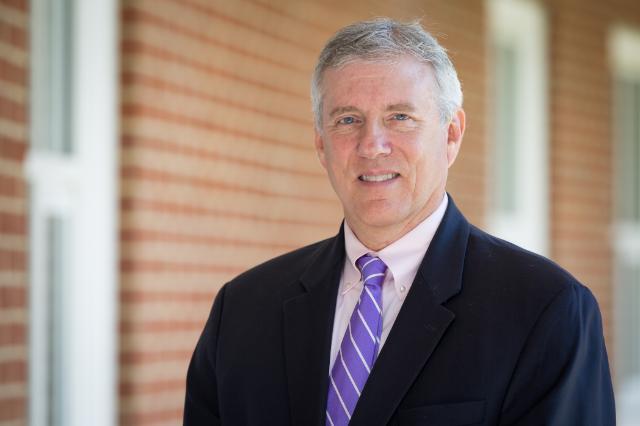
Dr. Kevin Doyle, associate professor of counselor education in the College of Education and Human Services at Longwood University, will be one of five featured speakers on Capitol Hill next week discussing the ongoing opioid crisis that kills nearly 100 Americans each day.
Doyle, a licensed professional counselor whose longtime private practice in Charlottesville focuses on addiction and who has published extensively on ethical issues of addiction counseling, will join four members of the American Counseling Association and a physician from the Substance Abuse and Mental Health Services Administration to educate Congress on treatment options for opioid-addicted patients and to advocate for increased funding for counseling.
“There are a lot of misconceptions that need to be cleared up about opioid addiction,” said Doyle, whose testimony will focus on the pervasiveness of opioid abuse in all levels of society. “There are people from all walks of life who become addicted to these drugs—it’s a crisis that cuts across socioeconomic, gender and racial lines. Many times we think of addicts as poor or criminal, but that’s not the case. When our representatives make recommendations on attacking the problem, they should understand this doesn’t just happen to a coal miner with a bad back, but to doctors, nurses, lawyers— anyone.
“There’s another popular misconception: that treatment only works when the patient is ready for it,” he said. “That’s simply not true. The National Institute on Drug Abuse outlines principles of effective treatment and has said explicitly that treatment does not have to be voluntary to be effective. Most people enter drug-abuse treatment reluctantly, and counselors are trained to start there. One of my goals for this briefing is to break down some of these pervasive misconceptions about drug-abuse treatment so legislators can work with accurate information when they attack this problem.”
Doyle, and his fellow speakers will brief legislators and their staffs on Tuesday, April 4, at 11:30 a.m.
The briefing comes on the heels of President Donald Trump’s Monday announcement that New Jersey Gov. Chris Christie will become a key White House adviser on fighting the opioid epidemic.
Since 1999, the number of opioid deaths has quadrupled and now accounts for the majority of drug overdoses in the U.S., according to the Centers for Disease Control and Prevention. Among young people, opioid overdoses have overtaken car crashes as a leading cause of death.
“We have a larger societal responsibility to act as advocates for issues that affect the people in our communities,” said Doyle. “Opioid addiction is not someone else’s or some other state’s problem—Virginia is significantly impacted by the epidemic.”
In 2016, Virginia State Health Commissioner Marissa Levine declared Virginia’s opioid crisis a public health emergency, and Gov. Terry McAuliffe instituted a task force on prescription drug and heroin abuse in Virginia, which led to the creation of the online resource VaAware.com. Additionally, Virginia is one of several states with a comprehensive prescription-monitoring program to combat “doctor shopping,” a strategy addicts use to acquire multiple opioid prescriptions by visiting several doctors. Now doctors must consult a database before writing any new opioid prescriptions.
“Virginia is one of several states leading the charge in this critical fight,” said Doyle. “We’ve put a lot of regulations in place that have helped stem some of the flow of prescription drugs into the hands of addicts, but I fear that some have been driven to the street to find illegal opioids. This is why it’s critical we adopt a comprehensive plan to combat the epidemic, and counseling is a major part of that.”
Legislators have noticed the problem and acted to address it. In 2016, President Barack Obama signed the 21st Century Cures Act, which provides $1 billion for drug treatment in 2017 and 2018. President Donald Trump’s proposed budget includes a $500 million increase to specifically address opioid abuse and increase treatment efforts. There’s still more to do, says Doyle.
“Counseling plays a large role in addiction recovery,” he said. “We’d like Congress to recognize the really critical part that counselors around the country play in pushing back against this epidemic. It’s not just about recognizing the problem but finding and funding effective ways to fix it.”

